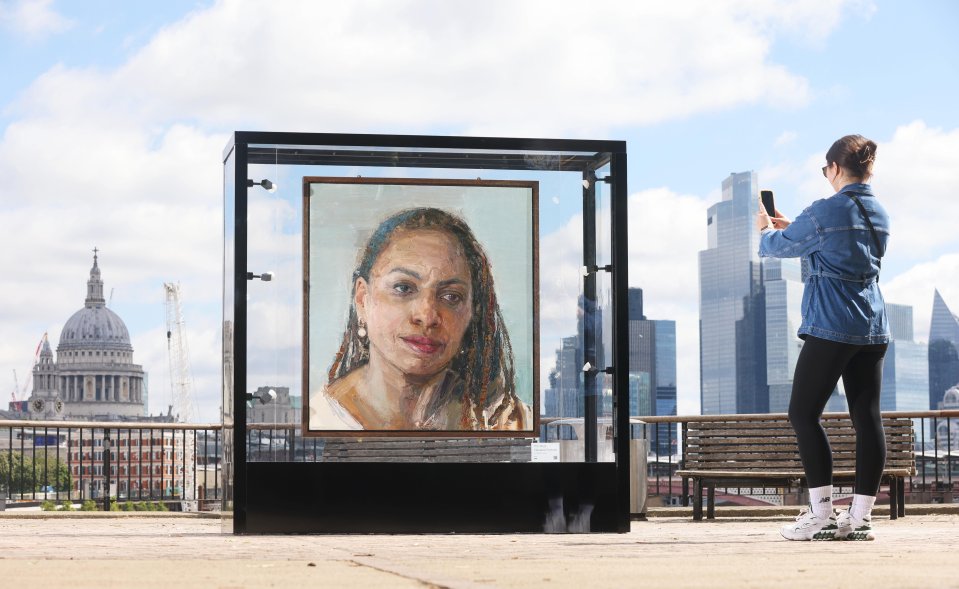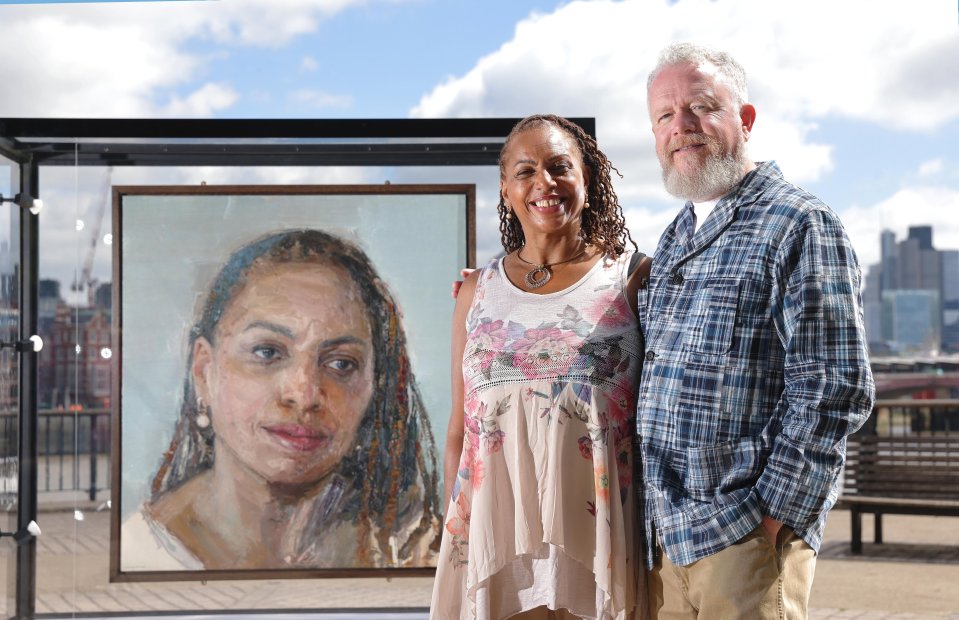ONE in three Brits expect to become an unpaid carer – within the next decade on average – but almost half admit they wouldn’t know where to turn for support when the time comes.
A poll, of 2,000 adults, found 62 per cent worry they will have to provide increasing levels of care for elderly parents, or loved ones, as their health declines.
Yet 46 per cent remain unaware of the services available for those who can no longer leave their homes.
And only 39 per cent are confident that they’ll know where to ask for help.
The research was commissioned by Specsavers Home Visits, as part of its Most Valuable Portrait campaign, which celebrates the unseen role of unpaid carers through a portrait by acclaimed artist Colin Davidson.
Featuring carer Jaycee Le Bouche, the portrait aims to spotlight carers’ selflessness and dedication, and has been symbolically ‘valued’ at £184 billion – the same amount as the invisible care system in the UK – by auction house Roseberys.
Chris Smith, director of Specsavers Home Visits, said: “When a loved one becomes ill, it can turn your life on its head – both practically and emotionally.
“Many people become carers overnight, with no training and little idea where to turn, which can be overwhelming, especially while juggling work and a personal life in tandem.”
The study also revealed two thirds (67 per cent) feel unpaid carers do not receive the recognition or support they deserve – even though their contribution is worth an estimated £184 billion a year to the UK economy, according to Carers UK.
Despite this significant number, almost half (47 per cent) underestimate the contribution of unpaid carers by billions.
When asked what they associated most with being an unpaid carer, 68 per cent pointed to cooking, cleaning and other household tasks.
A further 67 per cent said helping with washing, dressing and mobility is a key responsibility, while 62 per cent believe managing medical appointments – including eye tests and hearing checks – plays a major part.
The research also revealed two in three regularly think about whether they may one day need care themselves.
And 43 per cent said a major life event would be the trigger to begin such conversations with loved ones.
A third (34 per cent) would feel more comfortable discussing future care if they knew what options were available, according to the survey, conducted via OnePoll.
While 29 per cent would be more open if they had a clearer understanding of the financial impact of not planning ahead.
Chris Smith added: “Unpaid carers shouldn’t have to do it alone.
“That’s why we’re doing our bit through our Home Visits service – delivering essential eye and ear care at home to help ease the load and support both carers and those they look after.”

